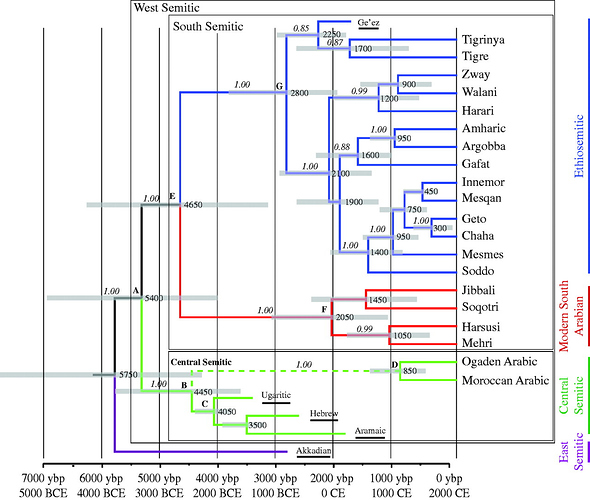I have various disagreements both with (a) the status quo among YEC (such as Morris, Ham, Sarfati), and (b) with OEC (such as Hugh Ross). For the most part, both are markedly astro-centric in their interpretation of any portion of Scripture than blindly can be so construed.
And so many in YEC also do one worse: they commit a Rationalistic kind of language-centric, nowhere-centrism upon Genesis 1. In fact, this particular centrism seems to me to bear the prime fault for anyone ever having the impression that Genesis 2 materially contradicts Genesis 1. If G1 must be viewed as being so mindlessly ‘straight forward’ that only the more roundly informed readers can possibly misunderstand any of it, then the way in which G2 presents its topics constitutes a most extremely rude cessation of such ‘straight forwardness’.
I’m a YEC myself, but not status quo.
Both Ross and Morris assert (claiming something without offering any kind of evidence that particularly supports the claim) that God rather explicitly told Adam to name the animals (Genesis 2:19). Ross actually uses the word ‘told’, and Morris uses both the word ‘told’ and the word ‘commanded’.
See:
Hugh Ross: ‘How long are the “creation” days of Genesis 1?’ (2008) How long are the creation "days" in Genesis 1? - YouTube (at time 03:35-03:52)
and
Henry Morris: Biblical Creationism: What Each Book of the Bible Teaches about Creation and the Flood. http://intelmin.org/wp-content/uploads/2011/09/BiblicalCreationismLO727.pdf pg. 22 bottom (‘told’) and pg. 20 bottom (‘commanded’).
The way I read Genesis 2:19, there is no normal suggestion of any outright dedicated specification, on God’s part, that Adam name anything: ‘Adam, name the animals’, or, ‘Adam, now, thou shalt name the animals’, much less, ‘Adam, command I thee to name these animals’, or ‘Adam, by my own Authority, I COMMAND you to name these animals!’ (i. e. accompanied by booming thunder).
The way I read it, the only normal implication of the wording and phrasing of Genesis 2:19b is that Adam had, in a very practical sense of conversation with God, already been naming other things. Thus is this part of this verse merely implying the pinnacle of that ‘naming’ effort, and this allows the account to be compact while being readily unpacked.
In fact, this compactness of a richer detail is suggested by the fact that Genesis 1 reports only five names that God called anything. In regard to the things that G1 reports that God named, the account itself first references these things by its author’s own more general terms, and then relates that God ‘called’ these things particular names (Genesis 1:5, 8, 10).
So my view is that:
(X) both Genesis 1 and 2 bear every likeness of actual reports, by a human author(s), of a variety of items, and some of which to which that human(s) was direct witness,
and
(Y) Therefore, the pair of accounts actually are such reports.
Morris and Ross, on the other hand, represent a very simplistic notion that the pair of accounts are more ‘authoritative’ than those accounts are normal compositions in normal language. Thus, both Ross and the status quo among YEC see at least Genesis 1 as being comprised of nothing more than a single simple narrative self-report, on the part of God, which God dictated, word-for-word, to the account’s transcriber. On this simplistic view, the account is God’s alone, by which He has expressed every one of His actions and utterances in the exact sequence in which He did and said them.
If (contrary to both Ross and his critics of the merely status quo stripe of YEC) these accounts are normal compositions in normal language, then that would strongly suggest that there is far more information implicitly meant in them for us to know than what they seem simply to ‘spell out’. Even Ross should admit that there is some implicitness to the phrase, in Genesis 1:2, of ‘darkness upon’. This phrase, when found elsewhere in Scripture to be referencing a terrestrial condition, normally and clearly is seen to imply the condition of dense cloud that blocks the light from the Sun reaching the surface of Earth----a surface where, normally, life exists.
